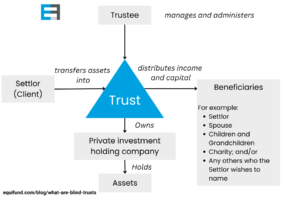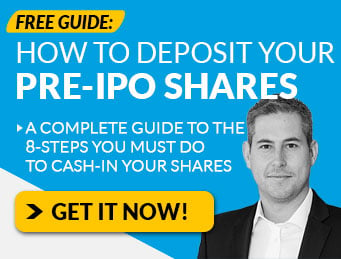47% of founders recently surveyed said they regretted getting millions of dollars in startup funding.
That doesn’t sound right. Who’s upset about getting paid?
Yet that’s exactly what the survey of 400 entrepreneurs found.
To be clear — the problem isn’t so much that these inventors, founders, entrepreneurs and startup innovators didn’t like getting cash.
It’s that they didn’t like the strings that came with it.
Before getting into that, it’s important to note — most founders are not naturally financially gifted.
Their talents in other industries are what make them special. For example…
- Biotech companies are often started by doctors and research scientists.
- Many SaaS companies are helmed by software designers.
- And, infrastructure businesses can be born out of a single insight arrived at by a brilliant engineer.
The point is, many young startups don’t have any financial expertise in their upper echelons.
And that can breed mistakes.
(It’s also one of the reasons we’re so fanatical about the quality of management teams!)
Now, plenty of startups get that financial expertise when they start raising money from VC funds or Angel investors…
But the problem is, raising money from VCs and Angels can be the “Original Sin” in the first place!
Let me explain…
The 5 Paths to Startup Capital
There are five main ways that startups can get an infusion of cash.
- Cash Flow. Become profitable so fast, you never need to go outside for cash.
- Private equity deals to major players. This is where a VC Fund or Angel Investor comes in with all the cash a company could want — in exchange for equity, often board seats, sometimes even control ownership of the company.
- Private equity crowdfunding deals. Similar to VC and Angel deals from a founder’s perspective — although with less strings, and usually a smaller amount of equity. This is the sweet spot for most startups.
- Public markets. Whether through an IPO or a SPAC. Getting all the cash you can imagine… at the expense of a lot of control of the company.
- Taking on Debt.
There’s a time and a place for all of these methods…
For instance, some companies will take years to turn cash flow-positive (and need interim injections of cash to keep the lights on).
Meanwhile, some companies are little more than an idea, and are in need of the sort of expertise and guidance a VC Fund can bring.
Some have an obvious path to success, but need enough capital to float a few lean years… while turning to the wisdom of the crowds for help with everything from fundraising to market research.
And others are already so large and successful, they can IPO for huge sums that just can’t be realized anywhere else.
But today, I want to focus on debt.
Because of the 47% of founders in that earlier survey that regret raising money, it’s not that they regret getting the money…
They regret the strings.
And with the 20/20 vision of hindsight, those founders wish they’d just taken on a bit of debt instead.
Debt Isn’t a Dirty Word
Growing up, your elders might’ve warned you about the evils of debt.
Which makes sense… if you came of age during a double-digit inflation era, like the ‘70s. Miss one payment, or have one hiccup, and you could spend years digging out of that hole.
Debt, however, is much more palatable this day in age. With prime rates near-zero, borrowing money today is a rounding error away from being free.
Ah! But there’s a catch…
Banks won’t lend money to companies unless they’re already turning a profit! So companies that most need to borrow are the exact ones locked out!
Here’s where having a wise financial head in the mix pays off.
Because even most founders aren’t aware of Venture Debt.
We’ve talked about it before, but as a refresher, venture debt is simply money lent, not by banks, but by funds formed to give loans to young companies.
And here’s the thing: They’re often an ideal vehicle for a number of situations startups find themselves in.
For instance… let’s say you’re a company with a product that you will release in three months. You’re highly confident the product will do well. The problem is, you don’t have the cash to cover payroll and production for the next 90 days, before money starts coming in.
Most companies would be forced to do a private raise to extend their runway… and have to give away a chunk of equity in the process.
This means long-term dilution of existing shares (and voting power) to solve a short-term problem.
But, if you’re able to bridge that gap with venture debt… you can cover your obligations, survive to your money-making moment, and keep all your equity.
Of course, you may be paying 6-10% interest, at a corporate rate… but only until you hit revenue generation and can retire the debt (if that’s the best use of your cash).
And as an added bonus, whatever money a company pays in interest servicing a debt is almost always tax-deductible.
You can see why a business in this sort of position would be much happier getting a loan from a venture debt fund, as opposed to giving up a chunk of equity in the company.
This is just one of countless scenarios where taking on a bit of debt makes more sense than raising capital in other, more expensive ways.
It’s also why we’re taking a hard look at Venture Debt this year.
Because, while Venture Debt can be a great deal for some companies… it also can be a great way for investors to grab monthly income, in the form of debt repayments.
And in what’s usually an illiquid space, this type of investing can provide a nice return in a shorter time period for the early-stage side of your portfolio.
Keep Your Eyes Open
Fed by a critical mass of startups tired of dealing with unfair offer sheets, 2021 is shaping up to be the year when Venture Debt goes mainstream.
If and when that happens, we’ll be here to help you sort the good deals from bad — the smart companies from the get-rich-quick money grabs — all while helping the 47% of founders who regret their private raises from making the same mistake again.
Venture debt is a powerful tool. It’s time the markets make better use of it — and for you to benefit.
Sincerely,
Ryan Cole – Analyst
Equifund













